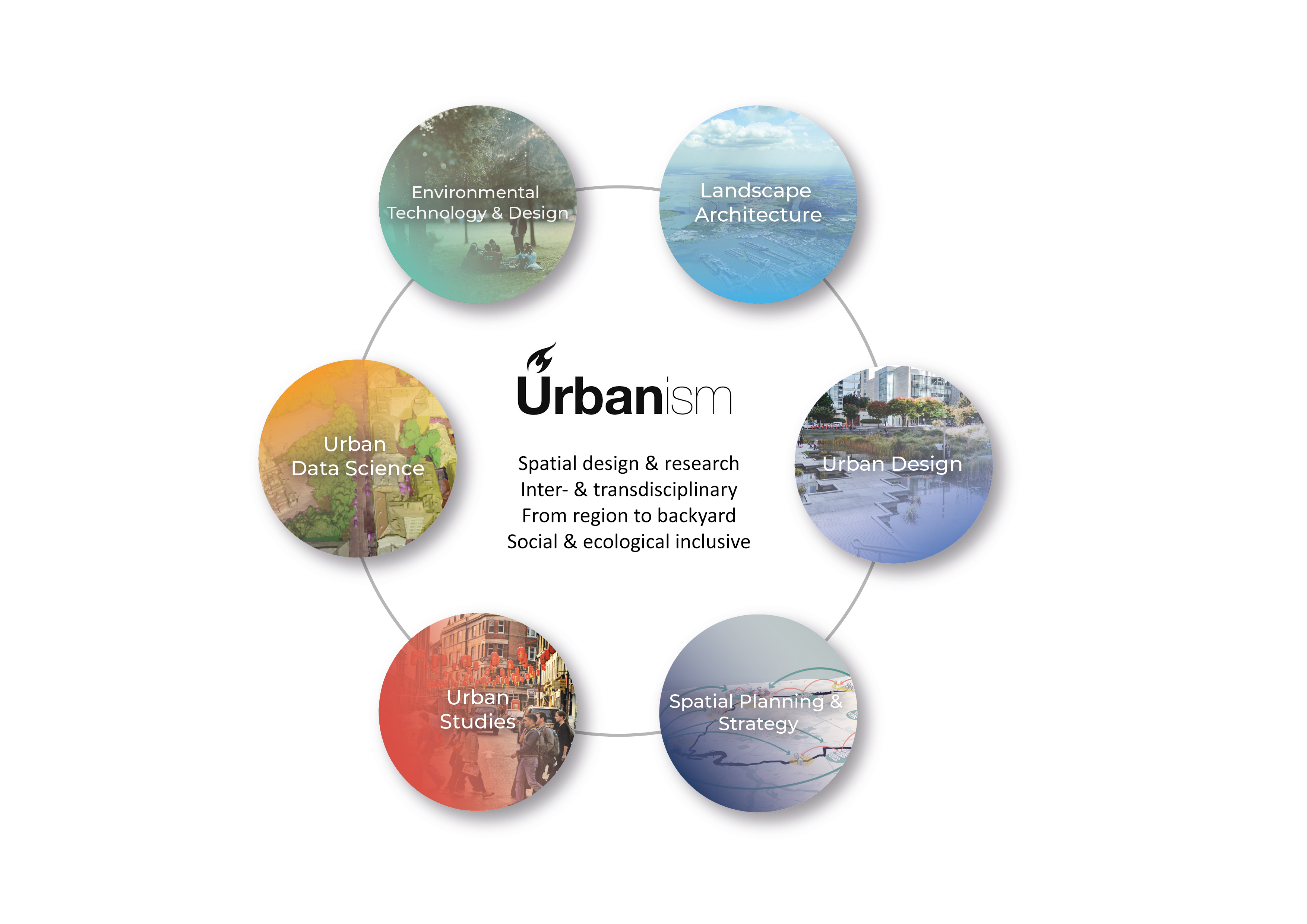Urbanism
Sustainable urbanisation, climate adaptation, circularity and digitisation are among the core themes the faculty embraced as relevant societal themes for research and education. The Department of Urbanism adopts them as the foundation for developing excellent scholarship and research. We see Urbanism as an interdisciplinary planning and design activity that focuses on the (re)creation of sustainable urban landscapes aimed toward climate adaptability, circularity, social equity, and ecologically inclusive urbanisation at all scales.
This is reflected by our mission: to advance, share and apply knowledge on how to adapt the built environment to societal and environmental changes; and to apply contextual design, planning and engineering strategies and interventions with impact for a better society.
The Urbanism research programme is shaped by our understanding that the quality of the urban environment is crucial for societies’ social, economic and environmental performance and for a more sustainable and fairer urban environment.
The Department of Urbanism received the highest score for excellence in both the 2016 and 2022 research assessment. Urbanism has an international reputation for academic research, scholarship and education built on the Delft Approach to Urbanism. This approach is knowledge-based, design-oriented, and multiscale, in which landscape architecture, urban design and planning closely collaborate with engineers, data scientists, sociologists, geographers, and ecologists. Urbanism is committed to socially relevant research, exemplified by our involvement in design projects and policy development, the development and implementation of practical tools and methods and our leadership and participation in (inter)national networks. A high level of scientific output in the form of journal articles, books and datasets and their use, but also the high number of prestigious ERC grants and awarded NWO and Horizon2020 funding testify to our premium research.
The breadth of disciplines represented in the department and the fruits of their interdisciplinary collaboration become apparent through our four research themes: Delta Urbanism, Inclusive Urbanism, Green Urbanism and Data-supported Urbanism. This interdisciplinarity also appears in the connections between the themes and our master programs Urbanism, Landscape architecture, and Geomatics. These themes enable us to align our ambitions and research initiatives, while bolstering innovation and collaboration. A key feature of our department is our dedication to open science, disseminating research results and teaching materials successfully through publications and datasets in open formats.
Strengthening a safe and productive academic culture, in which research integrity and inclusivity are key elements, is part of our ongoing effort to enhance the conditions for a thriving urbanism community. Through our HR policy we continuously work on increasing female representation among our senior staff, as well as improving cultural diversity. Our efforts in talent management focus on rewarding excellence through internal promotions and developing leadership and communication skills through dedicated programmes. At the same time, we teach and generate a steady number of planning, engineering, and design professionals through our MSc-graduate programmes. And we invest in our PhD student community, advancing future generations of internationally and design-oriented PhD researchers who benefit from a strong connection with our research.
The Department has six sections (see below), which engage with the four research themes from different perspectives. The six sections form the basis for inter- and transdisciplinary, context-driven, problem/solution-focused research and education.
Videos
Master Track Urbanism
Master Track Landscape Architecture
MSc Programme Geomatics
Department of Urbanism
- +31 15 278 44 30
- urbanism-bk@tudelft.nl
-
Julianalaan 134
2628 BL Delft
P.O.Box 5043
2600 GA Delft
Room BG.West.510
